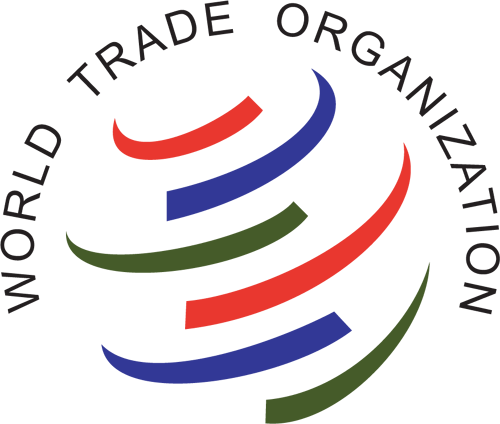WTO membership is an access for transforming national markets in Uzbekistan
Abstract
According to him, in order to avoid negative consequences for the economy from the entry of Uzbekistan into the WTO, this process is planned to be carried out on the basis of a comprehensive assessment of the readiness of individual sectors of the economy, various groups of domestic producers and the compliance of the state regulation mechanisms used.The republic is systematically preparing for joining the World Trade Organization, analyzing the situation on foreign markets, bringing its normative documents in line with generally accepted standards, and also developing support measures for the most vulnerable areas of production.
References
Bagwell, Kyle and Robert Staiger. 2002. The Economics of the World Trading System. Cambridge, MA: MIT Press.
Bagwell, Kyle, and Robert Staiger. 1999. An Economic Theory of GATT. American Economic Review 89 (1): 215–248.
Bagwell, Kyle, PetrosMavroidis, and Robert Staiger. 2007. Auctioning Countermeasures in the WTO. Journal of International Economics 73: 309–332.
Bown, Chad. 2004a. Developing Countries as Plaintiffs and Defendants in GATT/WTO Trade Disputes. World Economy 27 (1): 59–80.
Bown, Chad. 2004b. On the Economic Success of GATT/WTO Dispute Settlement. Review of Economics and Statistics 86 (3): 811–823.
Busch, Marc, and Eric Reinhardt. 2003. Developing Countries and GATT/WTO Dispute Settlement. Journal of World Trade 37 (4): 719—735.
Busch, Marc, and Eric Reinhardt. 2003. Developing Countries and GATT/WTO Dispute Settlement. Journal of World Trade 37 (4): 719—735.
Busch, Marc, Eric Reinhardt, and Greg Shaffer. 2009. Does Legal Capacity Matter? A Survey of WTO Members. World Trade Review 8 (4): 559–577.
Gabunia, Georgi, «Reasonable Protectionism» Expert, September 1998 #33.
Hoekman, Bernard, “Assessing the General Agreement on Trade in Services”, in Will Martin and Alan Winters Eds. The Uruguay Round and the Developing Countries, World Bank: 1996.
Hudec, Robert. 1993. Enforcing International Trade Law: The Evolution of the Modern GATT Legal System. Salem, NH: Butterworth.
Hudec, Robert. 2002. The Adequacy of WTO Dispute Settlement Remedies: A Developing Country Perspective. In Development, Trade, and the WTO, edited by Bernard Hoekman, AadityaMattoo, and Philip English, 81–91. Washington, DC: The World Bank.
Ianchovichina, Elena, W. Martin and E. Fukase, “Assessing the Implications of Merchandise Trade Liberalization on China’s Accession to the WTO.
Kovenock, Dan, and Marie Thursby. 1992. GATT, Dispute Settlement and Cooperation. Economics and Politics 4 (2): 151–170.
Langhammer, R.J. and M. Lucke, “WTO Accession Issues” Kiel Working Paper No.905, Kiel Institute Of World Economics, February 1999.
Maggi, Giovanni, and Andres Rodriquez-Clare. 1998. The Value of Trade Agreements in the Presence of Political Pressures. Journal of Political Economy 106 (3): 574–601
Maggi, Giovanni. 1999. The Role of Multilateral Institutions in International Trade Cooperation. American Economic Review 89 (1): 190–214.
Michalopoulos, Constantine and L. Alan Winters, “ Summary and Overview” in Peter D. Ehrenhaft et.al Policies on Imports from Economies in Transition, Studies of Economies in Transformation No. 22, World Bank, 1997.
Michalopoulos, Constantine, “The Integration of Transition Economies into the World Trading System”, Policy Research Working Paper 2182, World Bank September 1999.
Michalopoulos, Constantine, “WTO Accession for Countries in Transition”, Post-Soviet Prospects Vol.6, No3. June 1998.
Palmeter, David, N. “The WTO Antidumping Agreement and the Economies in Transition” in Thomas Cottier and Petros C. Mavroidis Eds. State Trading in the Twenty-First Century, University of Michigan Press, Anne Arbor, 1998.
Staiger, Robert, and Guido Tabellini. 1999. Do GATT Rules Help Governments Make Domestic Commitments? Economics and Politics 2 (2): 109–144.
Steven Husted, International Economics, Ninth Edition, University of Pittsburgh, Michael Melvin, Arizona State University and Black Rock, page 3
https://guides.ll.georgetown.edu/c.php?g=363556&p=4108236
https://uz.sputniknews.ru/analytics/20180314/7709364/wto-uzbekistan-torgovlya.html
https://www.thebalance.com/how-does-a-country-become-a-wto-member-3306362

In submitting the manuscript to the International Journal on Integrated Education (IJIE), the authors certify that:
- They are authorized by their co-authors to enter into these arrangements.
- The work described has not been formally published before, except in the form of an abstract or as part of a published lecture, review, thesis, or overlay journal.
- That it is not under consideration for publication elsewhere,
- The publication has been approved by the author(s) and by responsible authorities – tacitly or explicitly – of the institutes where the work has been carried out.
- They secure the right to reproduce any material that has already been published or copyrighted elsewhere.
- They agree to the following license and copyright agreement.
License and Copyright Agreement
Authors who publish with International Journal on Integrated Education (IJIE) agree to the following terms:
Authors retain copyright and grant the International Journal on Integrated Education (IJIE) right of first publication with the work simultaneously licensed under Creative Commons Attribution License (CC BY 4.0) that allows others to share the work with an acknowledgment of the work's authorship and initial publication in this journal.





1.png)
